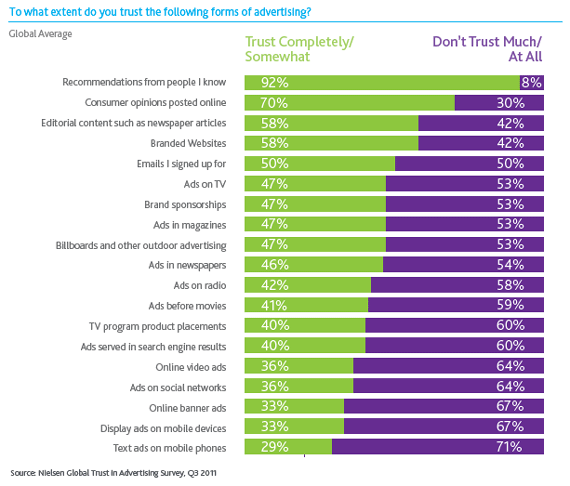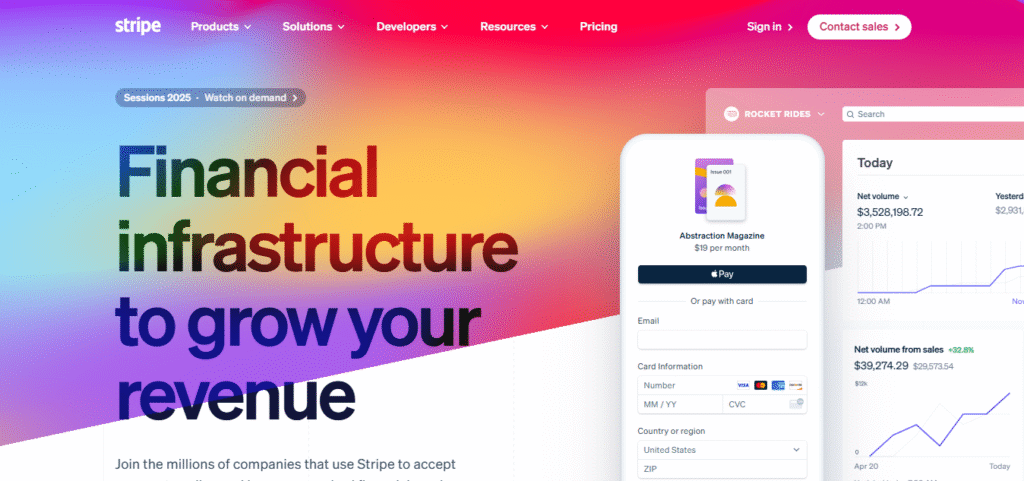How To Attract PR Features for Immigrant Entrepreneurs UK
If you’re an immigrant entrepreneur in the UK, you already know it’s not easy. Starting a business while adjusting to a new country takes real effort.
PR is not just for big companies. It can help you get noticed, trusted, and remembered, even if your business is still in its early stages of growth
UK media is always looking for fresh and diverse stories. They want to hear from new voices and people doing things differently. That includes you.
This guide will show you how to attract PR features for immigrant entrepreneurs UK.
Sounds like a lot? It is. But you’ve got this. And I’m here to make it simple.
Why PR Matters for Immigrant Founders in the UK
Starting a business in the UK as an immigrant is already a big step. Getting people to trust your business is the next challenge. That’s where PR comes in.
PR, short for public relations, helps you share your story with the public. It puts you and your business in the media. This can be through news stories, interviews, blog features, or even podcasts.
Now let’s look at some numbers. According to Nielsen, 92% of people trust earned media, like press stories, more than paid ads. That’s not all.
A study by Edelman found that 63% of people need to hear company news three to five times before they begin to believe it.
PR helps you stay visible. If you’re an immigrant founder, you may not yet have extensive networks. But with PR, your name can reach hundreds or thousands of people across the UK.
Plus, press features can attract investors, customers, and partners. It gives them confidence in you, even if they’ve never met you before.
PR vs Advertising – What Builds Real Credibility?
Here’s something many founders don’t know.
Ads can help people see your business. But PR helps them believe in it.
Let me explain.
When you pay for an ad, you control the message. But readers know it’s paid. They might skip it. Or worse, they might not trust it.
But when a journalist or media outlet writes about you, it’s earned attention. You didn’t pay for it. You earned it through your story, your work, and your value.
In a Nielsen study, PR was found to be 90% more effective than advertising in influencing consumers.
Think of companies like Stripe and Deliveroo. They gained attention through news stories, interviews, and public interest, long before they ran major ad campaigns.

The bottom line?
Advertising can help your business grow. But PR builds the kind of trust money can’t buy.
So if you’re thinking about startup PR strategy UK, start with the press.
The Unique Advantage of Personal Storytelling as an Immigrant Founder
As an immigrant founder, your journey is unlike that of everyone else. And that’s a good thing.
Your challenges, background, and drive to build something in a new country make your story unique. Journalists love that. They’re not just looking for products; they want people’s stories.
But why?
Because stories connect, and when you share your real experience, people listen.
According to the London School of Economics, stories are 22 times more memorable than facts alone.
Let me explain with an example.
When Tania Boler, founder of Elvie, spoke about her challenges building a femtech brand in the UK, her honest story made headlines. It wasn’t just about tech. It was about breaking taboos and building a future. That’s what made the press care.
You may be wondering if your story matters. It does.
So next time you’re pitching to journalists UK, don’t hide the immigrant part. Make it part of the message.
What UK Media Outlets Look for in Entrepreneur Stories
You might think getting media coverage is all about luck or knowing the right people.
But here’s the deal, UK media outlets follow clear patterns. They seek out stories that matter, inspire, and offer lessons their readers can learn from.
What are UK media outlets really after?
They want:
- A clear and original story
- A real problem being solved
- A unique angle or mission
- A face behind the business
- A connection to current trends or communities
According to the UK Press Gazette, over 75% of media outlets are actively seeking stories from underrepresented groups, including those from immigrant backgrounds.
So yes, there’s room and even demand for your voice.
But what makes a founder stand out in the UK press?
Let’s look at TechRound, Startups Magazine, and Sifted. These platforms regularly feature immigrant entrepreneurs. Why? Because those founders bring new ideas, fresh perspectives, and global solutions.
For example, Sifted spotlighted Husayn Kassai, co-founder of Onfido, not just for his business, but for his immigration journey and impact on tech ethics. That kind of mix is exactly what editors want.
And here’s something to remember:
The story doesn’t need to be huge. It just needs to be real and relevant.
If you want press opportunities for startups, tell a story that aligns with today’s headlines, tech, culture, social impact, finance, or sustainability.
Recent data from Cision found that journalists are 60% more likely to open pitches tied to timely topics and trends.

Understanding What Makes a “Newsworthy” Founder
What makes a founder newsworthy?
It’s not just being successful. It’s about having a story that stands out, and one that speaks to people.
Here’s how you can do the same thing.
UK journalists want more than numbers. They want to tell stories that matter. If you’ve overcome something big, created something new, or are solving a real-world problem, you already have a newsworthy story.
Take Mahmud Kamani, co-founder of Boohoo. He’s often featured in UK press not just for the fashion brand, but for how he built it as a self-made British-Pakistani entrepreneur. That mix of identity, success, and challenges makes him media gold.
According to PR Week UK, 68% of editors say stories with human impact are their top priority.
So ask yourself: what makes your journey different? What bigger picture does your startup connect to?
Industry-Specific Platforms That Welcome Diverse Voices
Not all media outlets are the same. Some are built for big corporate news. Others? They’re made to spotlight fresh voices like yours.
There are platforms in the UK that actively seek stories from diverse founders, especially those from underrepresented backgrounds. If you’re an immigrant entrepreneur, these are places you should know.
Here’s an example.
TechRound often features new founders, solo entrepreneurs, and early-stage startups. You don’t need millions in funding. You just need a good story.
Another great platform is Startups Magazine. They run regular spotlights on founders who are solving real problems, especially in tech, health, and sustainability.
Pioneers Post focuses on impact-led businesses. If your startup supports a community, tackles climate issues, or promotes fairness, they want to hear from you.
According to a survey by Diversity in PR, 70% of niche outlets in the UK are more likely to feature stories from ethnic minority founders.
How to Craft a Compelling PR Pitch That Gets Attention
You need to pitch it, but not just any pitch. A compelling PR pitch that gets attention from journalists in the UK.
Here’s something we can both agree on: journalists receive a flood of emails. What makes them open yours? A simple, honest, and well-structured message.
But what is a PR pitch, exactly?
It’s a concise email that conveys to the journalist what your story is, why it matters, and why their readers will be interested. Not why you need press, but why your story is worth telling.
Here’s how you can do the same thing.
Your pitch should include:
- A strong subject line: Grab attention quickly. Think: “Nigerian-born founder brings green tech to London streets.”
- A short hook: One or two sentences that say what makes your story different.
- Your founder story: Focus on the human angle. What inspired your startup? What’s the bigger purpose?
- The newsworthy part: Tie your story to a current trend, problem, or solution.
- Contact info and links: Add your website, press kit, and social media. Make it easy for the journalist.
Research by Propel PR shows that journalists spend less than 1 minute reviewing a pitch.
That’s why your message should be short and precise.
Let me explain with an example.
Say you’re building a finance app for immigrant workers. Don’t just say, “I launched an app.” Instead, say: “After moving to the UK, I saw how many new migrants struggled with financial access. That’s why I created [app name], a tool built from experience.”
Structuring Your Pitch: Hook, Story, Value
It needs to grab attention, share the story, and show why it matters, all in a few lines.
Here’s how to break it down:
Hook:
Start strong. One sentence. Make it interesting, emotional, or surprising.
Example: “A Syrian refugee builds a fast-growing tech startup in Manchester.”
Story:
Tell who you are and what your business does. Share a little about your background. Keep it short, but make it personal.
Example: “After arriving in the UK five years ago, I struggled to find work. That inspired me to build a job-matching app for skilled migrants.”
Value:
Now connect your story to a bigger issue. Show why readers should care.
Example: “With migrant communities growing across the UK, tools like ours can help reduce unemployment and boost economic inclusion.”
According to Muck Rack’s State of Journalism report, over 65% of journalists prefer pitches that are direct and clearly show the value to readers.
Common Mistakes Immigrant Entrepreneurs Make in PR Outreach
You’ve got the story. You’ve got the pitch. But still… no response?
Here are some of the most common mistakes immigrant entrepreneurs make in PR outreach:
- Talking only about the business
Journalists want stories, not ads. If your pitch sounds like a sales brochure, they’ll skip it. Focus on your journey, the problem you’re solving, and your impact.
- Sending the same message to everyone
Not all media outlets are the same. What works for TechRound might not work for Forbes UK. Always tailor your pitch to the platform.
- Ignoring the human angle
You may be wondering, “Is my story really that special?”
Yes, it is. But only if you show the human side; your struggles, wins, and reasons for starting.
- Forgetting follow-up
One email isn’t always enough. Journalists are busy. It’s okay to follow up, just do it politely.
PR industry data shows that personalised pitches have a 72% higher success rate than generic ones.
Best UK Platforms and Directories to Get Discovered
You’ve got your pitch ready. Now, where do you send it?
Several UK platforms and directories are ideal for early-stage founders, especially immigrant entrepreneurs looking to establish their presence.
Here’s the deal. These platforms don’t just publish success stories. They highlight founders who are building something meaningful, often from the ground up.
Here are some great places to start:
- TechRound
TechRound is known for featuring diverse voices. You don’t need to be famous or funded. Just have a clear story and a strong mission.
This platform focuses on innovation, tech, and founder journeys. It’s a great place to showcase your startup and how it addresses a real-world problem.
Sifted features deeper stories on startups across Europe. If your startup is tech-driven or growth-focused, they’re worth reaching out to.
A go-to platform for social impact founders. If your business supports people or the planet, they’ll likely be interested.
Building Relationships with Journalists and Editors
Here’s the deal: when a journalist knows you, they’re more likely to open your email, trust your pitch, and reach out for future stories.
Think of it like networking, but with words.
But how can you use this technique to build those connections?
Start small:
- Read their articles and leave thoughtful comments on social media
- Share their stories and tag them with credit
- Reach out with a compliment or useful tip—not just your pitch
- Over time, they’ll recognise your name and that’s huge.
If you admire a journalist who writes for Sifted or TechCrunch, follow them on LinkedIn or X (formerly Twitter). Engage with their posts without asking for anything right away. Let them get to know you.
Then, when you send a pitch, they’ll be more open.
How to Connect Authentically Without Spamming
Nobody likes spam, not journalists, not editors, not you.
So, how do you reach out without sounding pushy?
Here’s how you can do the same thing: make it personal and purposeful.
Start with something simple:
- Mention a story they’ve written and why you liked it
- Explain why your story fits their audience
- Keep it short and kind
You may be wondering if that really works. It does.
Journalist feedback shows that emails with personalised openers are 50% more likely to get replies than generic ones.
For example, instead of writing, “Hey, can you write about my app?”
Say, “Hi Emma, I really enjoyed your recent story on underrepresented founders in tech. I think our mission at [startup name] fits that theme.”
It’s short, direct, and respectful.
The bottom line? Speak to people like people. Not inboxes.
Following Up Without Being Pushy
So you sent your pitch… and got no reply. What now?
The answer? Follow up but do it the right way.
Journalists are busy. Emails get buried. That doesn’t mean they’re not interested.
Here’s how to follow up without being annoying:
Wait at least 4–5 working days
Keep it polite and short
Don’t resend the full pitch just remind them briefly
Here’s an example:
“Hi James, just checking in on the story idea I shared last week. I know you get tons of pitches, so I totally understand if the timing isn’t right. Let me know if you’d like any extra info!”
Simple. Respectful. No pressure.
According to Propel PRM, follow-up emails can boost journalist response rates by 45%.
The bottom line? A polite nudge is fine. Just don’t overdo it. No chasing. No guilt trips.
If they’re interested, they’ll respond.
Leveraging Personal Brand and Social Proof for Media Attention
Want more media attention? Start with your personal brand.
Journalists often search online before replying to a pitch. If they find a strong, clear profile, they’re more likely to take you seriously.
But what is a personal brand, exactly?
It’s how people see you online—your voice, your message, and your values. It’s what you post, how you show up, and the trust you build.
Here’s the deal.
According to LinkedIn, 77% of journalists research a founder’s online presence before replying to a pitch.
Ensure your social media, especially LinkedIn, is updated, active, and showcases your thought leadership.
And don’t forget social proof.
Social proof includes:
- Testimonials from customers or partners
- Mentions in news or blogs
- Awards and recognitions
- Guest speaking or podcast features
These things show that others trust you and that makes journalists take notice.
Take Sharmadean Reid, founder of The Stack World. Her personal brand through speaking, writing, and showing up online made her a regular in Forbes UK and The Guardian. Her social proof made her pitch stronger.
Want to know the best part?
You don’t need thousands of followers. Post frequently, share valuable insights, and showcase your work.
Build your voice. Share your wins. And soon, the press will follow.
How LinkedIn and Thought Leadership Posts Drive Press
According to PR Newswire, media outlets are 40% more likely to cover founders who have verifiable milestones or community impact.
Let me explain.
When you include this kind of proof in your pitch or LinkedIn posts, it demonstrates that you’re not just building, but growing. And that’s what the media wants to spotlight.
So go ahead, share that award. Post about your project. Your impact is part of your story.
Getting featured in UK media isn’t just for big names or funded startups. As an immigrant entrepreneur, your story is powerful, and the UK press is ready to hear it.
FAQs
How can immigrant entrepreneurs in the UK pitch their story to journalists?
Begin with a concise and clear email. Include a hook, a personal story, and why your startup matters. Keep it relevant to current trends and tailor it to each journalist.
Which UK platforms are best for early-stage founders seeking PR?
TechRound, Startups Magazine, Sifted, and Pioneers Post are top choices. They regularly feature new and diverse entrepreneurs, especially those building innovative or impact-driven businesses.
Can I get media features without hiring a PR agency?
Yes. Many founders gain press by crafting strong pitches, utilising platforms like JournoLink or HARO, and establishing direct relationships with journalists online.
How do I know if my founder story is newsworthy?
If your startup solves a real problem, ties into a current issue, or includes a personal journey especially as an immigrant you likely have a story worth sharing.
